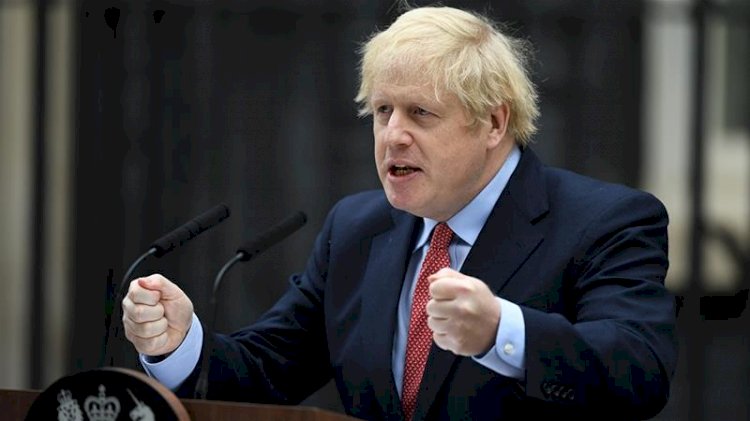UK: PM Boris Johnson warns of risking second coronavirus wave

After suffering from a severe case of coronavirus, Prime Minister Boris Johnson returned to work to the biggest dilemma of his premiership: how to lift the lockdown that is destroying the British economy without triggering a deadly second wave of the outbreak.
Speaking outside Downing Street early on Monday, he said the government "simply cannot spell out" when or how restrictive measures will ease, but offered hope by adding progress was being made with fewer hospital additions and that the United Kingdom was "passing the peak".
Johnson, 55, returns to work almost a month after he tested positive for COVID-19, which incapacitated the prime minister and threatened his life at the peak of the coronavirus crisis.
Addressing UK businesses, which fear more economic weakness amid the lockdown, he said: "We simply cannot spell out now how fast or slow or even when those changes will be made.
"I understand your impatience, I share your anxiety ... I entirely share your urgency, it's the government’s urgency and yet we must also recognise the risk of a second spike, the risk of losing control of that virus, and letting the reproduction rate go back over one. Because that would mean not only a new wave of death and disease but also an economic disaster.
"This is the moment of maximum risk."
His government, his party and his scientific advisers are divided over how and when the world's fifth-largest economy should start to get back to work, albeit in a limited form, as the number of people who
have died of coronavirus infection surpassed 20,000 over the weekend. Johnson's deputy, Foreign Secretary Dominic Raab, said social distancing would remain in place for some time.
 People wearing face masks cross Millennium Bridge in London
People wearing face masks cross Millennium Bridge in London
The UK is on course to be among the worst-hit European states with more than 20,732 hospital deaths reported as of Saturday.
But the UK's total death toll is much higher as statistics for deaths outside hospitals - for example, in care homes - are slower to be published.
The most stringent lockdown in peacetime history has left the economy facing possibly the deepest recession in three centuries and the biggest debt splurge since World War II.
Richard Horton, the editor of The Lancet, tweeted: "Today the UK Prime Minister returns to work. His first task is not to decide when to end the lockdown. Instead, it must be to manage public expectations about the length of lockdown. He needs to speak to the British people today."
Citing the example of Italy, which he said was following the "Wuhan timeline", Horton added: "We must use May to see new infections and deaths continue to fall. We must use May to plan a recovery plan for the nation. We must use May to think about what kind of future we want."
At the start of the outbreak, Johnson initially resisted imposing a draconian lockdown but then changed course when projections showed that a quarter of a million people could die in the UK.
Since the lockdown was imposed on March 23, his government has faced criticism from opposition parties and some doctors for the UK's limited testing capabilities and the lack of protective equipment for some front-line health workers.
Opposition Labour Party leader Keir Starmer, who has replaced veteran socialist Jeremy Corbyn, urged Johnson to set out when and how an economic and social lockdown might be eased - as did some Conservative Party donors.
"Simply acting as if this discussion is not happening is not credible," Starmer wrote in an open letter to Johnson.
 People are seen cycling on the Mall, London, on April 26, 2020
People are seen cycling on the Mall, London, on April 26, 2020
